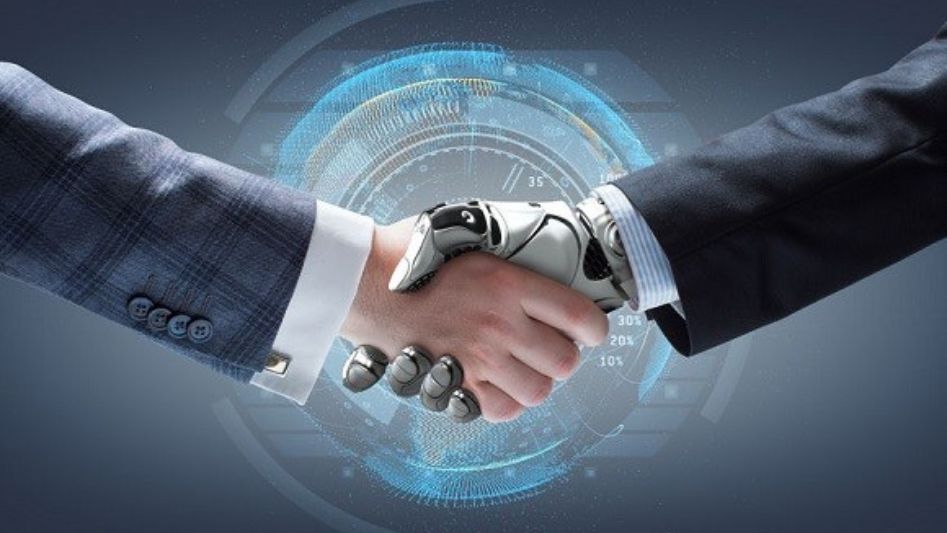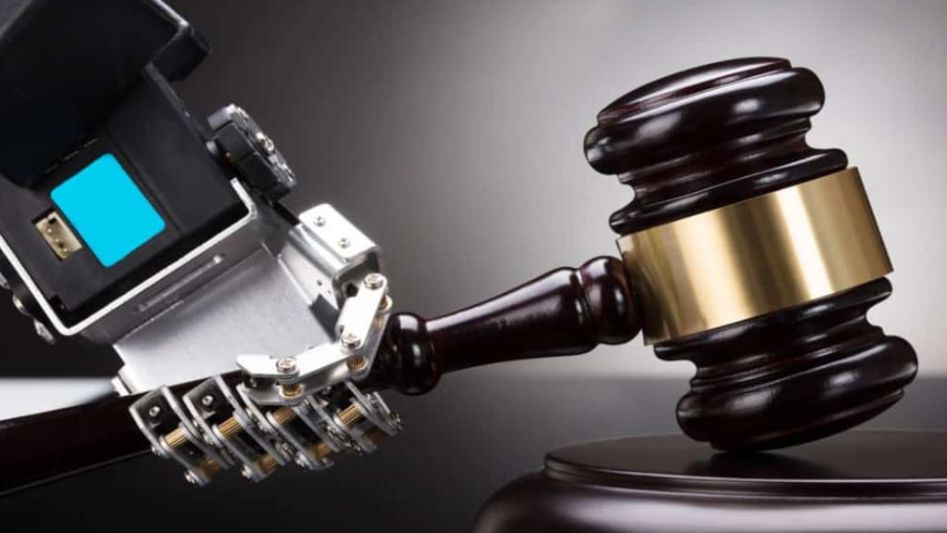In recent years, the use of Artificial Intelligence (AI) in the criminal justice system has grown significantly. From predictive policing to risk assessment tools, AI technologies have promised to enhance the efficiency and effectiveness of law enforcement and judicial processes. However, as AI becomes increasingly integrated into the criminal justice system, a critical question arises: What are the ethical implications of using AI in this context? In this article, we will explore the complex intersection of AI, justice, and privacy, and the need to strike a delicate balance between these fundamental values.
Table of Contents:
We invite you to read: “THE RISE OF CYBERSECURITY THREATS: PROTECTING YOUR DIGITAL WORLD”

The Promise of AI in Criminal Justice
Before delving into the ethical concerns, it’s important to acknowledge the potential benefits of using AI in criminal justice:
1. Improved Predictive Policing
AI algorithms can analyze vast amounts of historical crime data to identify patterns and trends, helping law enforcement allocate resources more efficiently and potentially prevent crimes.
2. Fairer Sentencing
AI-driven risk assessment tools can provide judges with objective data to make more informed decisions, potentially reducing bias in sentencing.
3. Enhanced Evidence Analysis
AI-powered forensic tools can assist in analyzing evidence such as DNA samples and security camera footage, potentially leading to more accurate outcomes in criminal investigations.
4. Efficient Case Management
AI can streamline administrative tasks, freeing up time for law enforcement and court officials to focus on more critical aspects of their work.
While these promises are appealing, they come with a host of ethical concerns that need to be addressed.
We invite you to read: “IOT SECURITY CONCERNS: SAFEGUARDING DEVICES IN A CONNECTED WORLD”

Ethical Concerns
1. Bias and Discrimination
One of the most significant concerns is the potential for AI systems to inherit and perpetuate bias present in historical data. If the data used to train these systems is biased against certain demographics, the AI may exacerbate existing disparities in the criminal justice system.
2. Lack of Accountability
AI systems often operate as “black boxes,” making it challenging to determine how they arrive at their decisions. This lack of transparency can undermine accountability and due process, as defendants and the public may not understand the basis for certain actions.
3. Privacy Invasion
The use of AI in criminal justice often involves the collection and analysis of massive amounts of personal data. This raises concerns about the erosion of individuals’ privacy rights, as well as the potential for misuse or abuse of this data.
4. Automation and Dehumanization
Over-reliance on AI systems can lead to the dehumanization of the criminal justice process, potentially reducing the role of human judgment and empathy in decisions that profoundly impact people’s lives.
Striking the Ethical Balance
While the ethical concerns surrounding AI in criminal justice are real and significant, it’s essential to recognize that responsible AI deployment can help address these issues. Here are some strategies to strike a balance between justice and privacy:
1. Data Quality and Diversity
Efforts must be made to ensure that the data used to train AI systems is of high quality and representative of diverse populations. Biased data can lead to biased outcomes, so rigorous data curation is crucial.
2. Transparency and Accountability
AI systems should be designed with transparency in mind. Manufacturers should provide detailed information on how the systems make decisions, and there should be mechanisms in place for accountability when errors or biases are identified.
3. Privacy Safeguards
Strong privacy protections should be implemented to prevent the misuse of personal data. Anonymization, encryption, and strict access controls can help protect individuals’ privacy rights.
4. Human Oversight
AI should augment, not replace, human decision-making in the criminal justice system. Human oversight and discretion should always play a crucial role in making final decisions, especially in complex and sensitive cases.
5. Continuous Evaluation and Improvement
AI systems should be subject to ongoing evaluation and refinement to ensure they remain fair, accurate, and just. Regular audits and reviews can help identify and rectify any emerging issues.
We invite you to read: “DATA PRIVACY IN THE DIGITAL ERA: NAVIGATING THE CHALLENGES”

Conclusion
The use of AI in criminal justice holds great promise for improving efficiency and fairness in the legal system. However, the ethical concerns surrounding AI deployment in this context are complex and cannot be ignored. Striking the right balance between justice and privacy requires careful consideration, transparency, and responsible design and implementation of AI systems. As society continues to grapple with these challenges, it is essential to prioritize ethical values while harnessing the potential benefits of AI in the criminal justice system.
FAQs
What is AI’s role in criminal justice?
AI in criminal justice involves using artificial intelligence technologies to enhance law enforcement, evidence analysis, and sentencing processes.
What are the ethical concerns associated with AI in criminal justice?
Ethical concerns include bias and discrimination, lack of transparency, privacy invasion, and the potential for automation to dehumanize the legal system.
How can the ethical balance be achieved?
Balancing justice and privacy in AI-driven criminal justice involves data quality, transparency, privacy safeguards, human oversight, and continuous system evaluation.
You May Also Like
- AI ECOSYSTEM IN CHINA READY TO LEAD
- THE IMPACT OF 5G TECHNOLOGY: FASTER SPEEDS, ENHANCED CONNECTIVITY
- 10 MIND-BLOWING WAYS IOT IS TRANSFORMING INDUSTRIES
- THE BENEFITS OF IOT IN MANUFACTURING AND INDUSTRY
- IOT AND ENERGY: HOW THE INTERNET OF THINGS IS TRANSFORMING THE ENERGY SECTOR


Recent Comments